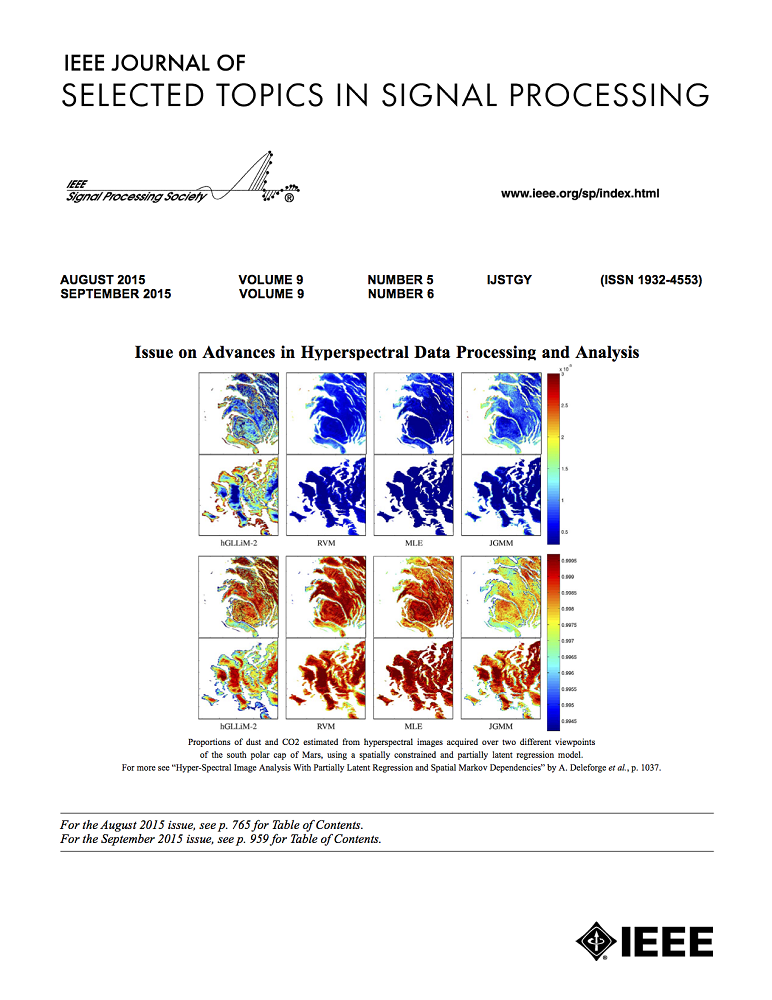公平感知的最优图滤波器设计
IF 8.7
1区 工程技术
Q1 ENGINEERING, ELECTRICAL & ELECTRONIC
IEEE Journal of Selected Topics in Signal Processing
Pub Date : 2024-01-10
DOI:10.1109/JSTSP.2024.3350508
引用次数: 0
摘要
图是一种数学工具,可用来表示现实世界中复杂的互连系统,如金融市场和社交网络。因此,图上机器学习(ML)近来备受关注。然而,事实证明,在各种决策问题中,由于在有偏差的图结构上进行信息聚合,图上机器学习会放大对某些代表性不足群体的已有偏差。面对这一挑战,我们在此借鉴图信号处理的见解,重新审视基于图的学习中的偏差缓解问题。我们的想法是在人工智能管道中引入预先设计的图过滤器,以减少一种新的无监督偏差度量,即敏感属性与底层图连接性之间的相关性。我们证明,上述滤波器的优化设计可以作为图谱域中的一个凸问题。我们还通过理论偏差分析提出了一个线性规划(LP)问题,该问题得到了一个闭式解,并产生了一个更有效的公平感知图过滤器。最后,对于自由度与输入图大小无关的设计,我们最小化了多项式图卷积滤波器系列的偏差度量。我们的最优滤波器设计具有互补优势,可以探索公平性-实用性-复杂性之间的有利权衡。为了进行性能评估,我们在真实世界的网络上进行了大量可重复的节点分类实验。我们的结果表明,与最先进的公平感知基线相比,所提出的框架能带来更好的公平性度量和类似的效用。本文章由计算机程序翻译,如有差异,请以英文原文为准。
Fairness-Aware Optimal Graph Filter Design
Graphs are mathematical tools that can be used to represent complex real-world interconnected systems, such as financial markets and social networks. Hence, machine learning (ML) over graphs has attracted significant attention recently. However, it has been demonstrated that ML over graphs amplifies the already existing bias towards certain under-represented groups in various decision-making problems due to the information aggregation over biased graph structures. Faced with this challenge, here we take a fresh look at the problem of bias mitigation in graph-based learning by borrowing insights from graph signal processing. Our idea is to introduce predesigned graph filters within an ML pipeline to reduce a novel unsupervised bias measure, namely the correlation between sensitive attributes and the underlying graph connectivity. We show that the optimal design of said filters can be cast as a convex problem in the graph spectral domain. We also formulate a linear programming (LP) problem informed by a theoretical bias analysis, which attains a closed-form solution and leads to a more efficient fairness-aware graph filter. Finally, for a design whose degrees of freedom are independent of the input graph size, we minimize the bias metric over the family of polynomial graph convolutional filters. Our optimal filter designs offer complementary strengths to explore favorable fairness-utility-complexity tradeoffs. For performance evaluation, we conduct extensive and reproducible node classification experiments over real-world networks. Our results show that the proposed framework leads to better fairness measures together with similar utility compared to state-of-the-art fairness-aware baselines.
求助全文
通过发布文献求助,成功后即可免费获取论文全文。
去求助
来源期刊

IEEE Journal of Selected Topics in Signal Processing
工程技术-工程:电子与电气
CiteScore
19.00
自引率
1.30%
发文量
135
审稿时长
3 months
期刊介绍:
The IEEE Journal of Selected Topics in Signal Processing (JSTSP) focuses on the Field of Interest of the IEEE Signal Processing Society, which encompasses the theory and application of various signal processing techniques. These techniques include filtering, coding, transmitting, estimating, detecting, analyzing, recognizing, synthesizing, recording, and reproducing signals using digital or analog devices. The term "signal" covers a wide range of data types, including audio, video, speech, image, communication, geophysical, sonar, radar, medical, musical, and others.
The journal format allows for in-depth exploration of signal processing topics, enabling the Society to cover both established and emerging areas. This includes interdisciplinary fields such as biomedical engineering and language processing, as well as areas not traditionally associated with engineering.
 求助内容:
求助内容: 应助结果提醒方式:
应助结果提醒方式:


